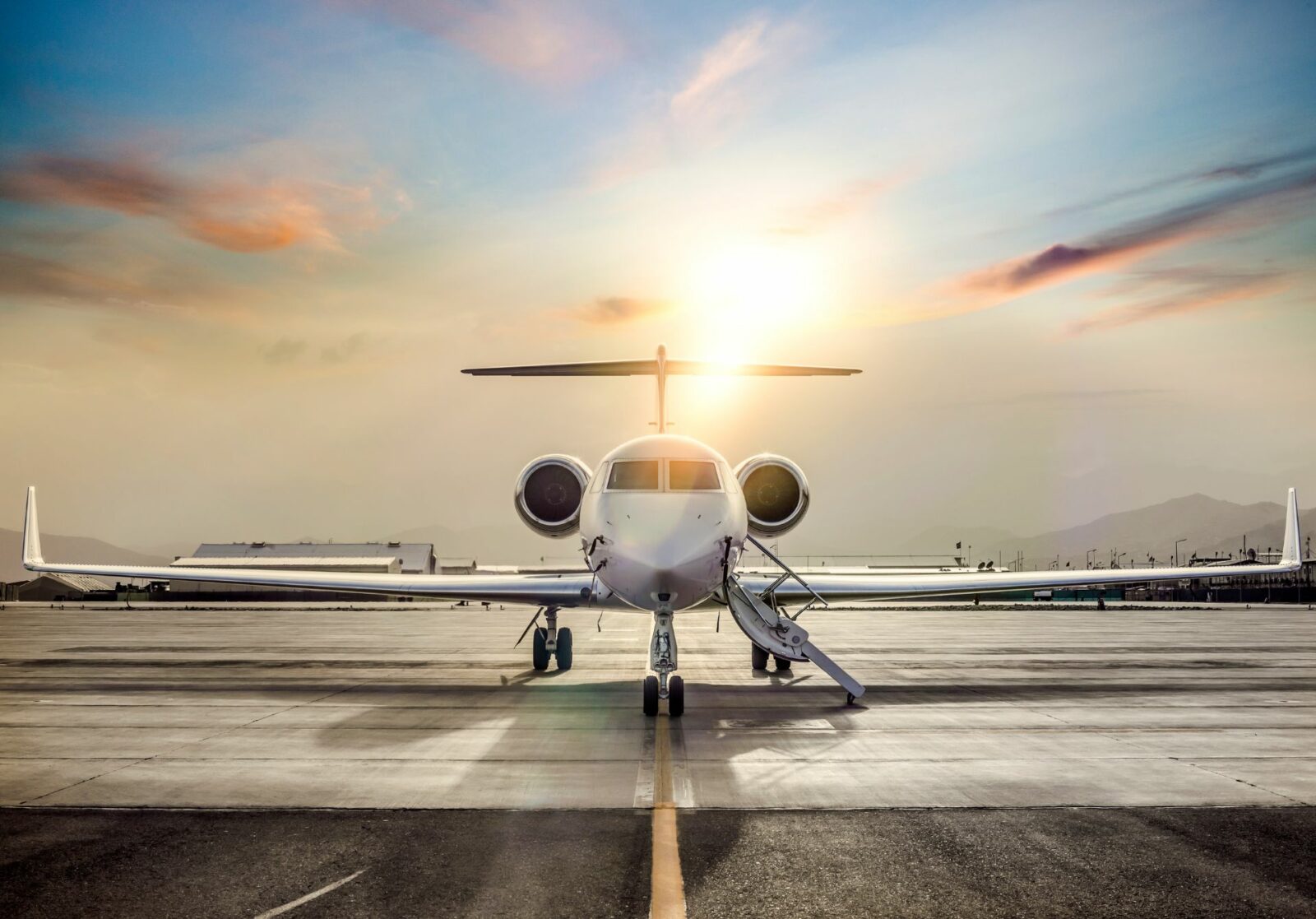Private jet travel represents luxury, exclusive service, and convenient transportation options. Security remains a top priority while maintaining constant protection for passengers, crew members, and aircraft.
Unlike commercial airline security, private jet security procedures aim to provide quick processing without compromising maximum safety standards. Let’s examine private jet travel security protocols incorporating TSA procedures, passenger screening, and additional essential security measures.
Understanding TSA Regulations for Private Jets
How TSA Rules Apply to Private Aviation
All private aircraft operating within US airspace are subject to TSA regulations regardless of their size or passenger count. The regulations function to reduce security threats and take private aviation characteristics into account to deliver a secure and smooth travel experience for affluent travelers and corporate leaders.
Partnership with the FAA
The Transportation Security Administration (TSA) and the Federal Aviation Administration (FAA) work together to establish security measures for private jets. Such collaboration ensures that security measures meet aviation safety standards and best practices to build a strong protection system for passengers and crew.
Passenger Screening for Private Jet Travelers
Before boarding private jets passengers need to present valid identification. This usually includes:
- A passport for international flights.
- The necessary identification for domestic flights includes a driver’s license or some other official government ID.
- Additional background checks might be needed depending on the situation.
The identification requirement serves to both confirm passenger identities and maintain flight security.
Luggage and Cargo Security
Private jets allow passengers to bypass typical baggage limits yet require luggage and cargo to adhere to security regulations.
Scanning and Searching Methods
Security screening of private jet passengers’ luggage and personal belongings involves procedures like x-ray scanning and physical searches. These security measures enable the detection of forbidden items and possible dangers to protect everyone traveling on the aircraft.
Prohibited Items
The TSA keeps an updated list of forbidden items for private jets, aligning with commercial flight restrictions.
These items include:
- Weapons;
- Explosives;
- Various hazardous items present potential dangers to flight safety.
Before traveling passengers must learn the prohibited items list to verify they leave restricted goods out of their baggage.
Comparison of Security Measures in Private and Commercial Flights
There is a substantial difference between private and commercial flight security when comparing their procedures and passenger screening methods to the overall experience. National and international aviation authorities regulate commercial flights through strict rules and oversight, including organizations like the TSA in the United States and the European Union Aviation Safety Agency (EASA).
Every traveler on commercial flights receives through security screening, which includes body scans and baggage checks, as well as potential additional searches. The enforcement of strict regulations regarding prohibited items and liquids, along with identification requirements at commercial airports, results in extended waiting periods.
Private flights provide passengers with a smoother security experience that involves less interference. Passengers of private jets usually depart through special terminals called Fixed-Base Operators (FBOs), which provide more relaxed security screenings.
Passengers experience minimal screening procedures, mainly consisting of identity checks and rare baggage inspections, without enduring long wait lines. The security threat level decreases for private flights due to their limited passenger count and pre-scheduled nature, which results in enhanced convenience and customized service.
In addition, private flights offer superior privacy and exclusivity because passengers control the individuals who can board the aircraft. Commercial flights involve travelers sharing a plane with hundreds of unknown individuals. Commercial airlines use standardized security protocols to protect large groups of passengers, but private aviation focuses on offering flexible and convenient services without sacrificing essential security measures.
Roles and Responsibilities of Passengers and Crew in Private Aviation
Private aviation requires passengers and crew members to fulfill particular duties that guarantee safety and efficiency while making the flight experience enjoyable. Private flights provide passengers and crews with more flexibility and convenience than commercial flights but they must still comply with necessary regulations and guidelines.
Passenger Responsibilities
Before boarding the flight, all private jet passengers must present their correct identification and travel documentation. Security screenings for private jet passengers remain minimal compared to commercial flights, but they must adhere to customs and immigration rules during international travel.
Passengers must submit any special requests like catering choices or luggage needs ahead of time to guarantee a smooth experience. Crew members provide safety instructions for passengers regarding seat belt usage and emergency response procedures.
Crew Responsibilities
The flight crew members, such as pilots and any available cabin attendants, must ensure passenger safety and comfort. Pilots perform pre-flight inspections while monitoring weather conditions and adhering to aviation regulations. Flight crews constantly communicate with air traffic control to make immediate decisions for a seamless flight experience.
Flight attendants manage in-flight services while assisting passengers and reinforcing safety procedures. The crew upholds confidentiality and discretion because private jet travelers need their travel experiences to remain private.
Advantages and Key Considerations of Private Jet Security
The security measures for private jets combine convenience with privacy protection and operational efficiency to become the top security option for affluent individuals and high-profile business and government leaders. Although private aviation offers streamlined security processes compared to commercial flights, it is essential to consider various factors for maintaining safety and regulatory compliance.
Benefits of Private Jet Security
Expedited Security Screening
A significant benefit of private jet security is its ability to provide a fast screening process. Private terminals known as Fixed-Base Operators (FBOs) serve as departure points where passengers experience minimal security procedures.
Private terminals do not have long lines, intrusive body scans, or extensive baggage checks like commercial airports do. Security personnel perform their duties discreetly through identity checks and brief luggage inspections.
Enhanced Privacy and Discretion
Celebrities, high-ranking executives, and government officials prefer private jet travel because it protects privacy. Private jets allow passengers to travel alongside trusted companions instead of sharing cabins with hundreds of strangers on commercial flights. Security personnel at FBOs receive training focused on confidentiality while flight lists remain private to prevent security risks.
Reduced Risk of Security Threats
The risk of security threats from unauthorized individuals boarding aircraft is significantly reduced because private flights operate with pre-arranged travel plans and limited passenger numbers.
The opportunity to personally choose passengers and crew allows flight operators to confirm the presence of trusted individuals on board. Security protocols can be personalized for VIP clients, including necessary background investigations and extra screenings.
Direct Access to Aircraft
Private passengers can directly drive to their aircraft, which avoids the need to navigate through busy airport terminals. This approach reduces the possibility of facing security threats in public airport spaces while improving passenger protection. Quicker boarding minimizes vulnerability to risks present in congested areas.
Private jet security is more efficient than commercial flights because it involves only basic screenings and maintains passenger privacy. Expedited check-ins at private terminals enable passengers to bypass long lines and intrusive security scans.
Private jets provide a safer environment because of limited passenger numbers and controlled access but remain compliant with mandatory aviation security rules, which involve customs and immigration inspections when flying internationally.
Passengers can request tailored security arrangements like individual security staff or upgraded baggage checks. Overall, private jet security achieves a safe travel experience by maintaining an optimal balance between convenience and privacy with safety measures.

